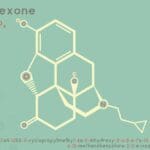Addiction affects every aspect of a person’s life.
One major part of this is an individual’s physical health. While detoxing the body of all substances is an important part of the recovery process, filling the body with good nutrients is needed for further healing. Some drug and alcohol rehab facilities have begun including a nutrition program in their recovery plans.
Alyssa Salz, MS, RD, LD, writes in an article published in Today’s Dietitian, “Proper nutrition and hydration are key to the substance abuse healing process because they help restore physical and mental health and improve the chance of recovery. Macro- and micronutrient deficiencies can lead to symptoms of depression, anxiety, and low energy, all of which can lead someone to start using drugs or alcohol or trigger a relapse.”
By the time many addicted individuals receive the care they need, their bodies are in very poor shape.
Some drugs and alcohol affect appetite and result in significant weight loss, which has severe consequences on a person’s body, including malnutrition and malabsorption.
While vitamins and supplements seem like the easiest answer to getting these nutrients back on track, adopting a healthy diet is the best plan.
Nutrition and addiction recovery are long-term issues that need to be addressed daily, so eating well (every day) is the right approach to healing the damaged body. The idea of adhering to a healthy diet, during or directly after completing an addiction treatment program, might not sound like fun because it’s common for people in recovery to crave sugar and carbohydrates. Adopting a new lifestyle takes time and effort, and the most important and immediate goal is sobriety itself. Making small dietary changes can be helpful at first, while a person gets more clean time under their belt.
References:
Salz, MS, RD, LD, A. (2014, December ). Substance abuse and nutrition. Retrieved December 2016, from Today’s Dietitian.
World, M., Ryle, P., & Thomson, A. (1985). Alcoholic malnutrition and the small intestine. Alcohol and alcoholism (Oxford, Oxfordshire)., 20(2), 89–124. doi:1985;20(2):89-124










